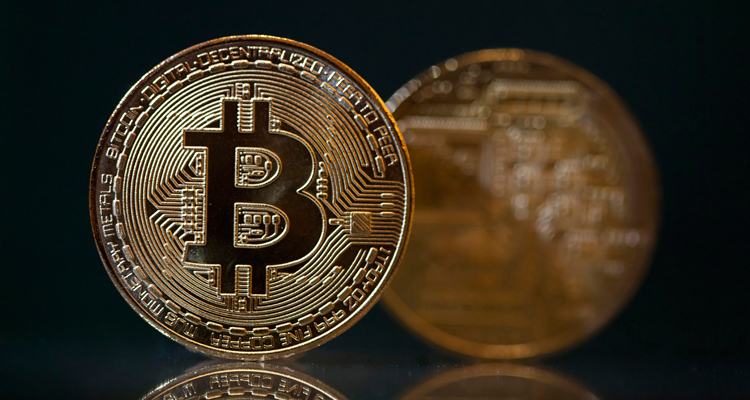
Well, sorta. The use of Bitcoin (the technology) and bitcoins (digital tokens) is not illegal in the United States at this time. However, the validity of bitcoins as true “legal currency” depends on who is speaking about them.
Bitcoin technology was developed by one or more software developers and launched under the inventor pseudonym of Satoshi Nakamoto in 2009. The technology is the basis of an agreement among people to use secure mathematical tokens as money via digital connections, including the internet. How much are these mathematical tokens worth? Today a bitcoin is worth $821.0010 U.S. Dollars but its value is quite volatile and tomorrow it could be worth far more or less. The bitcoin itself is not a physical coin; rather, it is an abstraction: if you have 100 bitcoins in your “digital wallet,” you actually have a number of addresses with the combined value of 100 bitcoins. Bitcoins can be generated by anyone running a free application called a “bitcoin miner.” As bitcoins are created, the network makes adjustments so there are a limited and predictable number of bitcoins created. There are now 12 – 13 million bitcoins in circulation, they are currently created at the rate of 25 every ten minutes and the maximum number of bitcoins ultimately produced will be 21 million by 2033. Bitcoins are obtained by being purchased, earned, or “mined” with special hardware, and stored in digital wallets – virtual devices allowing you to store currency and make electronic commerce transactions. Transfers occur essentially instantaneously and can be accomplished over great distances. When the bitcoin is transferred from one peer to another, an electronic signature is added, which is verified by a miner and permanently, anonymously stored in the network. Due to the technology, counterfeiting a bitcoin is reportedly impossible. Through these transactions, individuals can pay for gaming, applications, and numerous services and products. In addition, bitcoins can sometimes be changed for more traditional currency, such as dollars and euros, on several currency exchanges.
Bitcoin proponents claim that Bitcoin is to money what e-mail is to letters. A purported revolutionary step in the global economy, Bitcoin is deemed decentralized crypto-currency, created and used by a group of people/institutions rather than a government. One can start accepting bitcoins at no cost, there are no chargebacks and low-to-no fees associated with accepting bitcoins and they are globally exchanged. Transactions are peer-to-peer on the internet rather than through traditional monetary methods, bypassing traditional methods’ higher fees and allowing these individuals to transact in any country without accounts being frozen, and without prerequisite or arbitrary limits. Proponents also claim that the 21-million-bitcoin cap does not unduly limit bitcoins’ usefulness because each bitcoin can be divided into considerably smaller “pieces,” the currently smallest one being the “satoshi,” which is 0.00000001 bitcoin (BTC). Due to its advantages over traditional currency, Bitcoin has grown in global popularity, is currently accepted by more than 12,000 businesses/charities, and can be used to purchase “gift” cards accepted by major traditional businesses such as Staples, Amazon, CVS, Target, Banana Republic and Sears. Finally, Bitcoin’s advantages and success have led to “copycat” digital currency, such as Namecoin and Dogecoin.
Detractors claim that Bitcoin is not a true currency for several significant reasons. As mentioned above, the value of bitcoins is highly volatile, with dramatically fluctuating prices in an established currency such as the U. S. Dollar. In addition, Bitcoin lacks the normal capital controls and consumer protections provided by established currency. Furthermore, detractors point to Bitcoin’s close association with criminal activity, such as online gambling and the sale/purchase of illegal services or products. As a result, Bitcoin is considered “seedy” or “shady” by more established critics, is severely restricted by some countries, and is being followed closely by the FBI and other government agencies responsible for monitoring and combatting illegal activity. In sum, while Bitcoin operates like a currency in some respects and is even superior to traditional currency in other respects, it currently lacks some aspects of a true “legal currency.” Given the technology’s usefulness online and government attention to illegal activities, it’s a good bet that the Bitcoin-type technology will eventually be controlled, refined, and used to further a global revolution in commerce.
By Kathy Catanzarite
Source: Kathy Catanzarite - Handelonthelaw.com Staff Writer
Note from HandelontheLaw.com: This article is to be used as an educational guide only and should not be interpreted as a legal consultation. Readers of this article are advised to seek an attorney if a legal consultation is needed. Laws may vary by state and are subject to change, thus the accuracy of this information can not be guaranteed. Readers act on this information solely at their own risk. Neither the author, handelonthelaw.com, or any of its affiliates shall have any liability stemming from this article.


